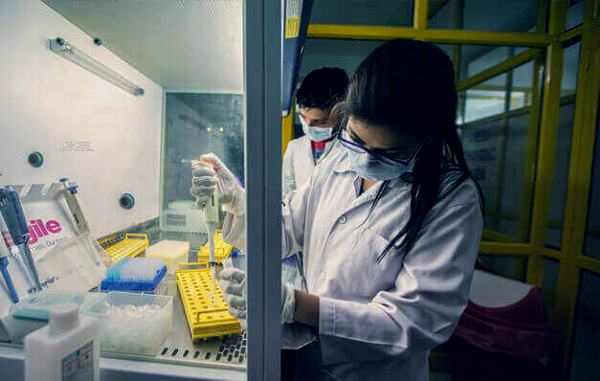The proposed policy apart from developing an ‘Ease of Doing Science Index,’, aims to develop regulatory guidelines for plants, microbes, insects, poultry, livestock, gene editing and other cutting-edge technologies
In a bid to bring scientific research in India at par with the global standards, the union government is working on a new playbook for a coordinated high impact research funding. As part of this plan, it is working on developing an ‘Ease of Doing Science Index’ to ensure effective use of both disbursed funds (including flexibility of fund utilisation) and the researchers’ time to weed out sub-standard research.
This database, under the draft national biotechnology development strategy 2020-24, reviewed by Mint, will be a central repository for all government funded research (previous and ongoing) and will help in directing funding towards strategically important research areas.
“Bringing in the ease of doing science is critical to doing quality science with direction and relevance, some of which translates into socio-economic opportunities with speed. The new science technology and innovation policy 2021 has a special focus on this aspect,” said Professor Ashutosh Sharma Secretary, Department of Science and Technology.
The proposed policy apart from developing an ‘Ease of Doing Science Index,’, aims to develop regulatory guidelines for plants, microbes, insects, poultry, livestock, gene editing and other cutting-edge technologies.
The draft policy document also proposes setting up a policy unit or think tank, and forecasting and developing policy white paper on new and emerging areas and strategic priority areas.
Despite the fact that India has several strengths in science, the proposed policy suggests focusing on building a strong research academic partnership, enhancing venture capital for high-risk science, enhancing research and development expenditure by industry, strengthening the link between research and commercialisation.
Earlier this year, Prime Minister Narendra Modi said that continuing efforts are being made to ensure the ‘Ease of doing Science’. In tune to this, in the budget 2021-22, ₹14,798 crore have been allocated for the Ministry of Science and Technology. According to Department of Science and Technology (DST) secretary Ashutosh Sharma, these funds would add to the current corpus of extramural funds from the DST and the Department of Biotechnology both.
“Ensure quality assurance of Indian products as per international standards, ensuring educational curriculum needs to be aligned to prepare students as per industry demands and creating and strengthening State-of the-art research facilities and translational centres,” the document reads.
The biotechnology department with the policy aims to update the biotechnology curriculum with special emphasis on interdisciplinary areas, Intellectual property rights (IPR) and regulatory aspects and periodic assessment of different training programs to keep pace with contemporary developments and to enable seamless movement from one level to the next.
The research quality and output remain low in India. According to an investigation, published in the journal Nature in 2017, India is the top country globally to get low-quality research published in ‘predatory’ journals. The study also found that India contributed 27% of the scientific studies in bogus publications.
India has proportionately about 18% the number of researchers China has, 5% that of the US, and 3% that of South Korea, policy think-tank Brookings India said in a report released in 2019. India has 216.2 researchers per one million inhabitants, against 1,200 in China, 4,300 in the US, and 7,100 in South Korea, according to the report. India spends less than 1% of its gross domestic product (GDP) on R&D, while South Korea spends more than 4.23%, and China 2.11%, according to the report. India and China were spending almost similar portion (0.6%) of their GDP on R&D in 1996 but two decades later China’s expenditure on R&D jumped by more than four-fold whereas India’s expenditure remained largely static, the findings showed.
Source: LiveMint
You may also like
-
Navigating India’s Skill Landscape
-
Trade Connect E-platform For Exports Is Single Window, Fast, Accessible And Transformational: Shri Piyush Goyal
-
India-us Working Together In Areas Like Critical Minerals, Supply Chains And Advanced Technologies: Shri Piyush Goyal
-
Cabinet Approves Health Coverage to All Senior Citizens of the Age 70 Years and Above Irrespective of Income
-
Cabinet Approves PM Electric Drive Revolution in Innovative Vehicle Enhancement (PM E-DRIVE) Scheme With An Outlay of ₹.10,900 Crore
